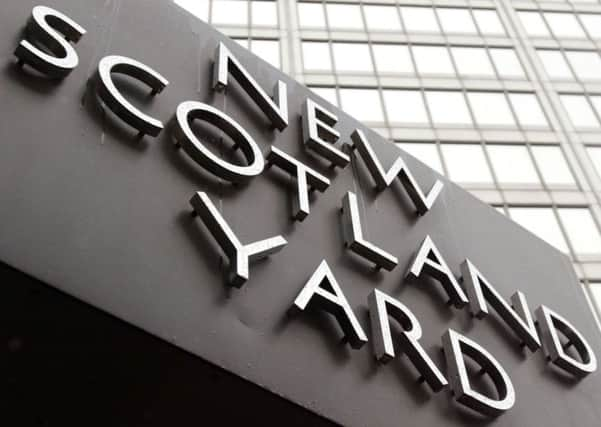Chris Marshall: Inquiry into Met’s Scotland operations needed


Chris Marshall Pressure is growing on the government to hold an inquiry into the activities of undercover officers attached to the Metropolitan Police during their time in Scotland.
The issue has been building for a while, but gained fresh impetus last week following the revelation Police Scotland contravened data guidelines in using the controversial Regulation of Investigatory Powers Act (RIPA) to reveal a journalist’s source.
Advertisement
Hide AdAdvertisement
Hide AdCampaigners want ministers to set up an inquiry similar to one in England and Wales which is looking into undercover police operations dating back to 1968. Led by Lord Justice Pitchford, it is expected to look at how undercover police officers spied on activists during key events such as the 1984-5 miners’ strike and the poll tax riots.
It will also explore the role of the Met’s now defunct Special Demonstration Squad (SDS) and the separate National Public Order Intelligence Unit (NPOIU).
Last month, the Met issued an “unreserved apology” to seven women tricked into having relationships with undercover operatives, including notorious officer Mark Kennedy.
Activists believe Kennedy was one of a number of officers who spied on environmental campaigners during the G8 summit at Gleneagles in 2005 and may have followed their activities for years afterwards. They include Jason Kirkpatrick, who claims Kennedy interfered with his media work during the G8, and Kate Wilson, an activist who had a two-year relationship with Kennedy before his true identity was revealed.
It is thought Kennedy was one of a number of undercover officers who operated on behalf of the Met in Scotland, a tactic which would likely have required the go-ahead from the relevant Scottish force at the time.
The controversy follows the publication of a long-awaited report by Sir Stanley Burnton, the Interception of Communications Commissioner, which said Police Scotland had been “reckless” in failing to obtain judicial approval when attempting to access communications data.
Sir Stanley said Police Scotland had sought communications data to determine a journalist’s source or the “communications of those suspected to have been acting as intermediaries between a journalist and a suspected source”.
Justice secretary Michael Matheson has promised HM Inspectorate of Constabulary in Scotland will carry out a “thorough and in-depth” review of Police Scotland’s counter-corruption practices in light of Sir Stanley’s findings.
Advertisement
Hide AdAdvertisement
Hide AdHowever, he has appeared far less assured on the wider subject of covert police surveillance. Asked earlier this year whether Police Scotland had spied on activists or trade unionists, Mr Matheson told the Scottish Parliament he had “no idea”.
Pressure is now growing on the minister to explore the issue, particularly after revelations at the weekend that the NPOIU had links with some of Scotland legacy police forces which were merged in 2013 to form Police Scotland.
According to the Sunday Herald, a review of NPOIU carried out by Her Majesty’s Inspectorate of Constabulary found the controversial unit worked with Scottish forces. The review also found that Kennedy made 14 visits to Scotland.
Amid claims in some quarters that Met officers may even been operating in Scotland in the run-up to last year’s independence referendum, this latest scandal is not one which shows any sign of going away any time soon.